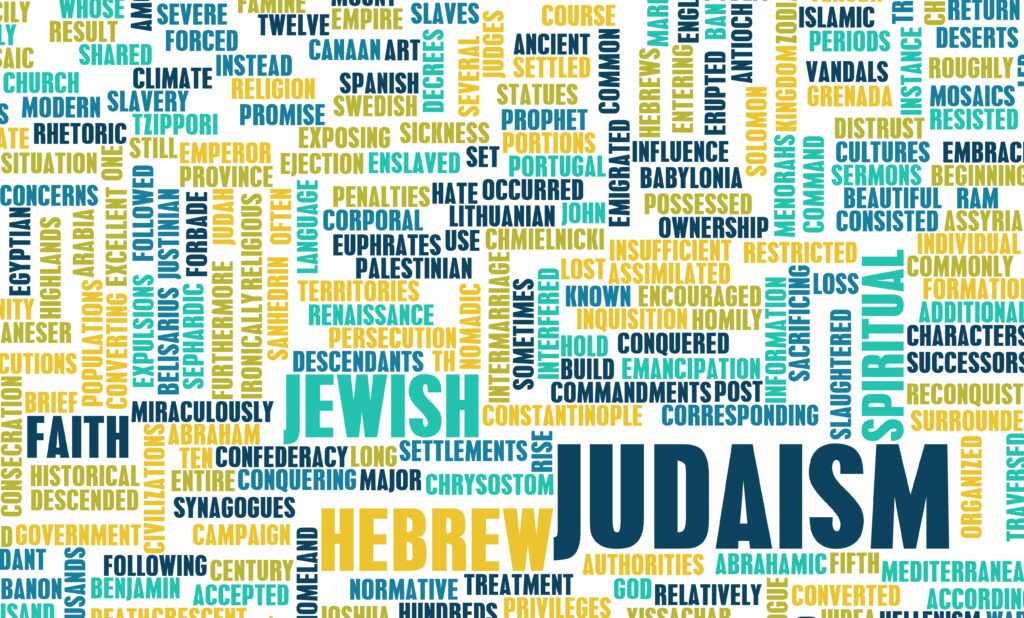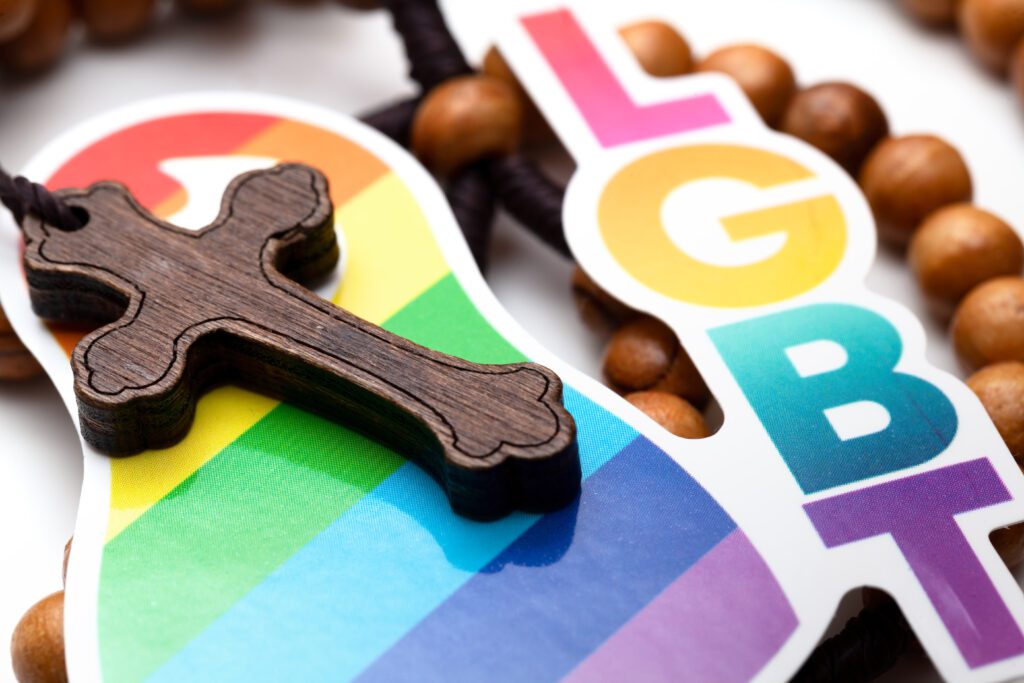In today’s diverse world, workplaces are melting pots of cultures, beliefs, and traditions. However, while enriching, this diversity sometimes leads to challenges, including religious discrimination.
Religious discrimination can manifest as subtle biases to overt actions. Let’s explore the religions that commonly experience discrimination in the workplace and understand the importance of fostering a more inclusive environment. If you believe you suffered discrimination, consult an employment San Diego discrimination attorney near you.
Schedule a Free Case Evaluation Today!
Islam

Muslims often face significant challenges in the workplace due to stereotypes, misconceptions, and outright discrimination. This discrimination ranges from biases in hiring practices to daily workplace interactions and the observance of religious practices.
Examples and Stereotypes
Revealing one of the most striking examples of discrimination against Muslims in hiring practices, a Carnegie Mellon study found that Muslim candidates had a significantly lower callback rate compared to their Christian counterparts when their social media profiles exposed their religious affiliation.
At a local level, in areas with a high percentage of Republican voters, Muslim candidates received callbacks at almost four times lower rates than Christian candidates.
In the workplace, Muslims face widespread discrimination, including denial of religious observances such as prayer breaks or the wearing of religious garb. For example, there have been instances where companies have denied Muslim employees prayer breaks or requests to schedule work breaks to accommodate fasting during Ramadan.
Stereotypes Fueling Discrimination
Stereotypes about Islam and Muslims fuel these discriminatory practices. Influential figures and media portrayals often paint Islam not as a religion but as a political system, leading to widespread misconceptions.
For instance, high-profile advisors and officials have made statements that Islam is a religion of submission rather than peace, influencing public and employer perceptions.
Statistics Highlighting Discrimination

The impact of 9/11 has had a long-lasting effect, with Muslims bearing a significant part of the burden of discrimination in America. Despite making up less than 2 percent of the U.S. population, Muslims have been the complainants in more than 20 percent of religion-based discrimination charges filed with the U.S. Equal Employment Opportunity Commission since.
The American Civil Liberties Union (ACLU) has documented various forms of discrimination and challenges faced by Muslims, from attacks on Islamic centers to discriminatory national security profiling.
This profiling includes collecting racial and ethnic information on minority communities based on stereotypes and scrutinizing passengers for signs of mal-intent without scientific basis, leading to allegations of racial and religious profiling.
Judaism
Jewish employees in the workplace sometimes face discrimination rooted in long-standing stereotypes and anti-Semitic sentiments. This form of discrimination manifests in many ways, from derogatory jokes and slurs to assumptions about Jewish beliefs and practices and even exclusion from certain projects or roles based on these biases.
A study from Rice University’s Religion and Public Life Program highlighted that around half of Jewish individuals reported experiences of workplace discrimination.
The discrimination against Jewish people often involves Islamophobic and anti-Semitic rhetoric, where they are generalized apart from being a larger group, experiencing insults, stereotyping, and social exclusion.

This indicates a significant issue of religious discrimination in the workplace, affecting not just hiring, firing, and promotion but also day-to-day interactions and the comfort of Jewish employees in expressing their religious identity.
The Society for Human Resource Management (SHRM) reports that one in four Jewish Americans has been the target of anti-Semitic behavior, including physical attacks or racial slurs. These incidents can occur in public schools and workplaces.
The examples of antisemitism in the workplace cited include:
- Not hiring or paying someone less because they are Jewish.
- Assigning less desirable work conditions.
- Refusing to grant religious accommodations.
- Making anti-Jewish remarks.
The rise of technology has also led to antisemitic harassment via social media, Zoom meetings, and companies’ internal chat platforms.
The EEOC has taken a stand against antisemitism, unanimously approving a resolution condemning violence, harassment, and bias against Jewish individuals. This resolution reaffirms the Commission’s commitment to combat all forms of harassment and discrimination and to ensure equal opportunity, inclusion, and dignity for all in the workplace.
Sikhism
Sikhs, known for their distinct religious practices, including wearing turbans and keeping uncut hair (kesh), face considerable challenges in the workplace due to discrimination. This discrimination stems from a lack of understanding of their religious practices and often manifests in profiling, mistaken identity, or direct discrimination.
Observant Sikhs maintain five articles of faith as an integral part of their religious practice, including the turban and uncut hair, which hold deep religious significance. However, these visible expressions of their faith make them susceptible to workplace discrimination.
Sikhs are among the most vulnerable groups to discrimination in the United States, facing a significant risk of anti-religious hate crimes. Between several years, Sikhs saw an average annual increase of 102 percent in victimization due to hate crimes, underscoring the severity of the discrimination they face, including in the workplace.
Hinduism
One of the world’s oldest religions, Hinduism is rich in culture, traditions, and festivals. However, Hindu employees in diverse workplace environments may sometimes face challenges that stem from misunderstandings or a lack of awareness about their religious practices. This can manifest in various ways, affecting their work life and well-being.
Understanding Hindu Practices and Festivals
Various practices, rituals, and observances characterize Hinduism, with many being integral to the daily lives of its followers. These can include daily prayers, fasting on specific days, and celebrating a wide array of festivals such as Diwali (the Festival of Lights), Holi (the Festival of Colors), and Navaratri (a festival dedicated to the worship of the Hindu deity Durga).
Each of these festivals has its significance and way of celebration, often involving specific rituals, foods, and social gatherings.
Workplace Challenges for Hindu Employees

One of the primary issues Hindu employees may face is a lack of understanding or awareness about their religious practices among colleagues and management. This can lead to insensitive, hurtful, or offensive comments or jokes. Such an environment can make Hindu employees feel marginalized or disrespected, damaging their sense of belonging, job satisfaction, and productivity.
Workplace social activities that do not consider the diverse cultural backgrounds of all employees might inadvertently exclude Hindu employees. For example, organizing team lunches or dinners without considering dietary restrictions (many Hindus are vegetarian) or scheduling important meetings on major Hindu festivals, when some employees may wish to take time off, can lead to feelings of exclusion.
A supportive workplace recognizes and accommodates the religious observances of its employees. However, Hindu employees may sometimes struggle to obtain time off for important religious festivals or find a private space for prayer during the day. The absence of such accommodations can burden these employees, forcing them to choose between their jobs and religious obligations.
Christianity
In the tapestry of global cultures and religions, Christianity, while predominant in many regions, finds itself in the minority in others, leading to unique challenges for its adherents. In these contexts, Christians may encounter discrimination stemming from a lack of understanding or misconceptions about their practices and beliefs. This discrimination can manifest in various ways, subtly or overtly impacting their daily lives and sense of belonging within their communities or workplaces.
Discrimination against minority Christian communities can arise from deeply rooted cultural or religious biases. In some cases, these biases lead to exclusion from social activities or community events, creating a sense of isolation among Christians. They may feel overlooked or deliberately left out due to their religious beliefs, which can be particularly disheartening in environments that purport to value diversity and inclusion.

Also, the misunderstanding of Christian practices and observances can result in bias, where their religious needs and holidays are not acknowledged or accommodated. This lack of recognition affects their ability to practice their faith freely and can make them feel undervalued or disrespected in their workplaces or social circles.
For example, not accommodating time off for significant Christian holidays like Easter or Christmas can create a source of tension and discomfort, making it difficult for Christians to balance their religious commitments with their professional or social obligations.
The bias experienced by Christians in minority contexts can also extend to verbal or physical harassment, where individuals face derogatory comments or actions because of their faith. In some communities with heightened religious tensions, this can escalate to more severe forms of persecution, depicting a stark reality.
Such environments foster a culture of fear and can deter individuals from openly practicing their faith or expressing their beliefs, impacting their mental well-being and sense of security.
Other Faiths
In our diverse global landscape, employees who practice less known or often misunderstood religions, such as the Baha’i Faith, Buddhism, and others, can encounter unique forms of discrimination in the workplace. This discrimination lays its roots in a lack of understanding or awareness, fostering stereotypes and biases that harm workplace experiences. Exploring the challenges faced by adherents of these religions sheds light on the need for more inclusive and accepting workplace environments.
The Baha’i Faith
The Baha’i Faith, founded in the 19th century in Persia, emphasizes the unity of all people and religions. Despite its message of peace and unity, Baha’is can face misunderstandings and prejudice due to the relatively small size of their community and the unique aspects of their faith. This might translate into exclusion from social groups or activities in the workplace because of misconceptions about their beliefs or practices.
Baha’is observe several holy days that they refrain from work, and they may struggle to have these observances recognized or accommodated by employers unfamiliar with the Baha’i calendar.
Furthermore, misinterpreting their beliefs can lead to unfounded stereotypes, affecting their professional relationships and growth opportunities.
Buddhism
Buddhism, a religion based on the teachings of Siddhartha Gautama (the Buddha), emphasizes the path to enlightenment through practices aimed at developing mindfulness, ethical conduct, and wisdom.
Despite its ancient roots and widespread following, Buddhist employees can still face workplace challenges due to misconceptions about their meditation practices, dietary preferences (such as vegetarianism), or the need for time off to observe important religious days like Vesak.
Colleagues might view these practices as odd or unnecessary, leading to exclusion or mockery. Also, Buddhism’s peaceful and reflective nature is sometimes mistakenly interpreted as passivity or disinterest in career advancement, potentially hindering professional development.
Other Less Known Religions

Employees belonging to other less-known or misunderstood religions also navigate a landscape of stereotypes and biases. These individuals may practice faiths with traditions, rituals, and observances unfamiliar to their coworkers, leading to curiosity but, unfortunately, to misunderstanding and exclusion.
The lack of visibility and representation for these religions often means that their followers must constantly educate others about their beliefs, a tiring and isolating burden. The workplace becomes another arena where they must defend their practices and negotiate for recognition and accommodation, from dietary restrictions and prayer times to religious holidays.
Contact a Workplace Discrimination Lawyer
If you or someone you know faces discrimination at work due to your religious practices, beliefs, or affiliation with a less-known or often misunderstood religion, contacting a workplace discrimination lawyer is a great step. A lawyer can offer you the guidance and representation to address these issues effectively.
A discrimination lawyer can help assess the specifics of your situation, advise you on your rights, and outline the best course of action. Whether negotiating accommodations, filing a complaint, or pursuing legal action, a workplace discrimination lawyer will stand by your side, advocating for your right to a fair and respectful workplace.
Remember, seeking legal advice does not only guide you as you navigate your current situation but also contributes to creating a more inclusive and understanding workplace for everyone. Standing up against discrimination, you help set a precedent that respects diversity and fosters equality.

Don’t let misunderstanding or prejudice undermine your professional experience or personal dignity. Take control of your situation by contacting a workplace discrimination lawyer today. They can guide you as you navigate the complexities of discrimination claims, explore your legal options, and empower you to take a stand for your rights.
Your voice matters, and seeking legal support ensures you receive the advocacy needed to address workplace discrimination and work toward a fair resolution.





